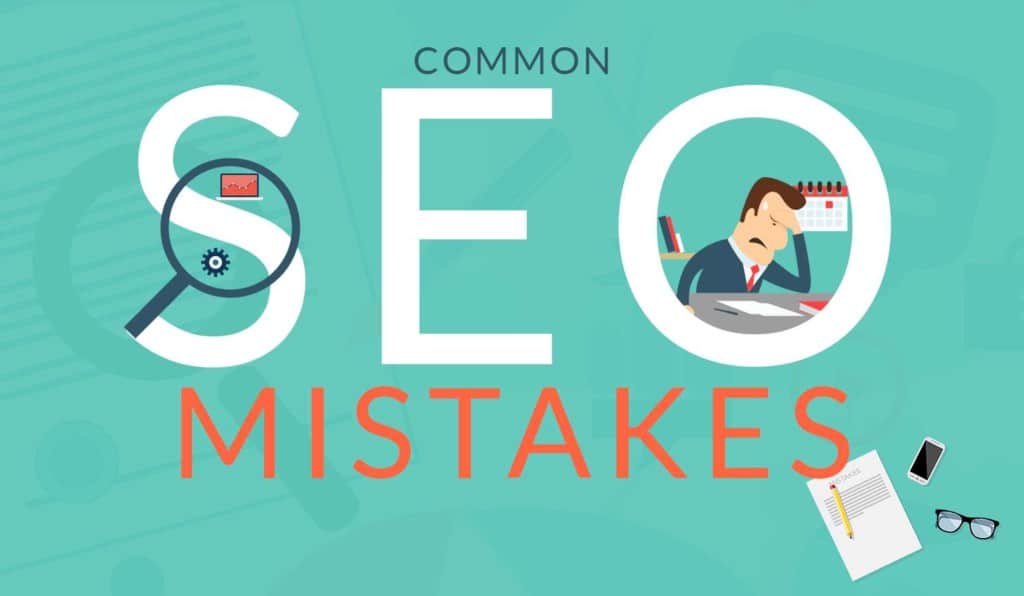Content marketing proves to be a valuable area on which businesses can bank on to not only to improve their rankings, but also contribute to increasing their foot traffic and conversion rates. Combine quality content marketing with an effective SEO strategy and you can expect your website to gain authority within your niche.
However, some content marketers still fail to hit the jackpot with the content they’re producing. What’s worse is that they fail to recognize their errors or oversights, which cause them to not get their expected SEO results.
If you can relate to this sentiment, you may want to take a closer look at these five common SEO mistakes that content marketers make and should highly avoid.
Mistake #1: Overly optimising content with keywords
Thanks to the rise of keyword usage, marketers have honed in on using these words and phrases as much as they could with every piece of content they produce. From landing pages to blog posts, keywords became the priority, instead of focusing on producing high quality content.
Let’s establish that keywords do indeed help in optimising content, but it’s not the be all and end all of content optimisation. In fact, pieces that don’t have widely used keywords can still make it big with high quality content. This means prioritizing how your content is structured, the substantial information it contains, and just how much relevance it can truly offer to your audience.
Mistake #2: Failing to boost old, yet still relevant, posts
Every piece of content you publish matters. This includes even those old, yet still highly relevant, pieces that would prove to be beneficial to your audience today as it was in the past. And this is why it’s important to find ways to promote old content to drive traffic and establish your authority.
One way of doing so is including some references and links to newer pieces of content. You can also re-promote them through social media platforms or include them in your regular e-newsletter blasts. It’s a great way to double your optimisation efforts, as well as in building your site’s credibility.
Mistake #3: Focusing too much on the length of content
Long form or short form? Marketers, copywriters, editors, and content creators have long debated which length of content would prove to be most effective in engaging readers. The answer? Both has its merits–and both has its downsides.
Again, there is too much focus on the length–as with keywords–and not so much on the quality and substance of the content itself. Forcing a writer to stretch out their ideas into a multitude of words, when in fact it could be done with a shorter version would feel contrived and unnecessary to a reader. The same goes for compressing relevant information into a shorter piece, when it would be best suited having a longer explanation. The key is to be flexible enough with the length and strategic enough to know that quality trumps all–including keyword usage and word count.
Mistake #4: Overlooking the importance of internal linking
Prioritising getting external links over internal ones are much too common an oversight among bloggers and marketers. Although external linking is really proven to be highly beneficial in gaining authority, internal linking shouldn’t be overlooked as well.
Once you’ve managed to gain traction with external linking, you can then build on internal linking, which could even solely help your site rank higher. This is because internal links alert search engines on which pages are deemed important. One effective way do implement internal linking is by linking to old posts, as what’s previously been mentioned.
Mistake #5: Not producing content frequently
Regardless if you’re writing a well researched long-form content with all the right keywords, it would prove to be ineffective for your site if you post very rarely. Surely, there are special cases in which infrequent posting can still garner links and traffic but studies point to those that post more frequently earn higher foot traffic and engagement.
Find the number that’s optimal and most beneficial for your brand to engage your customers without overwhelming them with a barrage of content here and there. Not only is this advantageous in making sure that your audience stays connected with your brand, but it also bodes well in optimising your site for search engines.
Conclusion
There are many ways to succeed in content marketing and SEO but part of that success is ensuring that you also avoid committing these common mistakes, among many others errors that content marketers often overlook.
If you’re finding it hard to get the results you’re aiming for, SEO-wise, then it may be best to go back to the drawing board and reassess at your strategy, at what you’re doing correctly, and what you’re doing wrong–or not doing at all. Only through this can you be fully aware of even the slightest hint of oversight that may be costing your whole SEO and content efforts.


